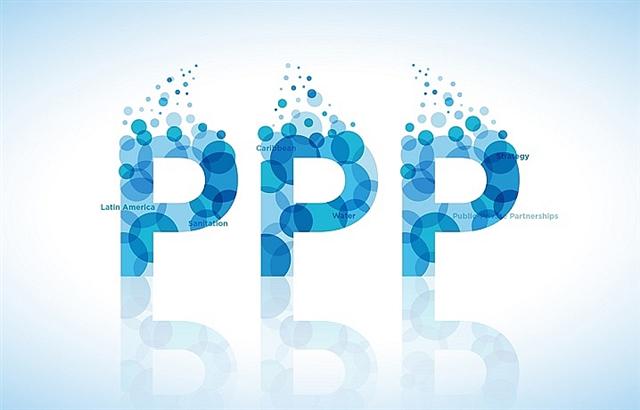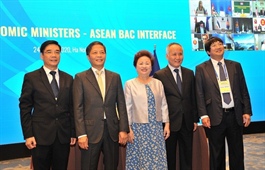Minimum PPP capitalisation rules up for debate
Minimum PPP capitalisation rules up for debate
Amid concerns over minimum investment capital requirements among domestic and international investors, to-be-issued guiding decrees will affect the subdivision of investment fields to increase the bankability of public-private partnership projects from early next year.

Minimum PPP capitalisation rules up for debate - illustration photo
|
Various ministries and cities last week joined discussions with the Ministry of Planning and Investment (MPI) about possible contents of the draft decrees guiding the implementation of the Law on Public-Private Partnership Investment, expected to come out on January 1, 2021, with the minimum investment capital requirement being one of the top concerns.
Under the law, five sectors are subject to PPP development, including transport; energy; social infrastructure; clean water supply, waste and wastewater treatment; and IT.
The minimum investment capital requirement is marked at VND100 billion ($4.34 million) or VND200 billion ($8.68 million), depending on the sector. The latter is applied to projects in sectors like transport, power (except for hydroelectric power plants), water and wastewater, IT, and infrastructure.
Meanwhile, the VND100 billion level is applied to projects in healthcare and education and training. However, these requirements are not applied to operation and management arrangement ventures.
The draft decrees are planned to target some specific sectors, mainly in the transport and water/wastewater treatment areas, towards requiring higher total minimum investment capital and applying for projects of at least Group B under the Law on Public Investment. Meanwhile, other sectors have a total minimum capital of VND200 billion as stated in the Law on Public-Private Partnership Investment.
According to the Ministry of Transport (MoT), which has a number of projects to be carried out under the public-private partnership (PPP) format, the five main subsectors of road, rail, inland waterway, maritime, and aviation feature investment capital wildly different from one another. “Road projects require big investment, while the threshold in inland waterway and maritime is smaller. We propose keeping the rate of VND200 billion as stated in the law,” said an MoT representative. “We also agree with the subdivision of transport segments.”
The Ministry of Construction, the Ministry of Information and Communications, and the Ministry of Industry and Trade (MoIT) also agreed that it is necessary to subdivide sectors into smaller segments and that there should not be a fixed rate for all as it would not be bankable.
“The minimum investment capital requirement of VND2.3 trillion ($100 million), equal to Group A projects, is feasible for power and thermo-power plants, and those with huge total investment capital,” a representative of the MoIT clarified. “For power grids, this capital requirement is higher because the majority has the investment of VND1 trillion ($43.4 million). Only long power grids have the investment capital equal to that of projects in Group A, but the number is few,” she added.
Localities also commented on the issue. Specifically, a representative of the Haiphong municipal Department of Planning and Investment said that the proposed minimum investment capital requirements in the to-be-built draft decree are too high, making it hard to attract investors. She proposed keeping the minimum investment capital requirement at VND200 billion as stated in the law.
“Solar power projects are often valued at about VND600-800 billion ($26-34.8 million), while those in education and healthcare usually sit at around VND100 billion.”
Similarly, a representative of Quang Ninh provincial Department of Planning and Investment, where a number of clean water supply and waste treatment projects developed under the PPP format are located, said the VND1.5 trillion ($66 million) mark is too high. “If applied, there will be no projects in this field that can be developed in the province, and the same will go for other provinces,” the representative said.
The minimum investment capital requirement for PPP projects has been a concern among investors. Jeffrey Wandly, vice president of the Singapore Business Association Vietnam, said that it is very high and only very large-scale foreign-invested enterprises can participate. “The PPP law currently provides that the minimum investment capital of a PPP project is VND200 billion. The inclusion of the minimum capital sum would be in line with ensuring that larger PPP projects are prioritised. However, it also means that investors with limited capacity may be excluded from participating,” Wandly told VIR.
According to the MPI, the subdivision of the sectors and the minimum investment capital for each field will be considered in the drafting of the decrees to ensure bankability of future PPP projects. They will be then announced for public comment before issuance.






















